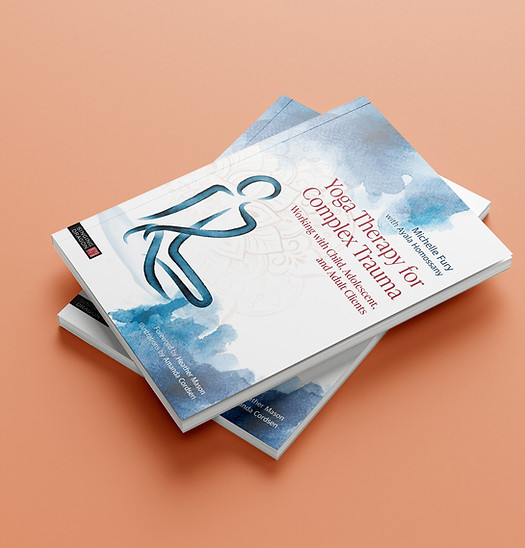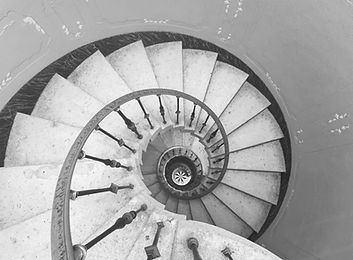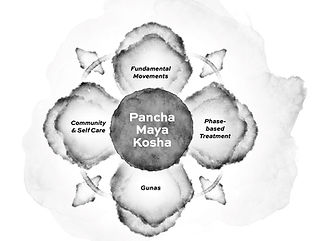
THE BOOK
Yoga Therapy for Complex Trauma: Working with Children, Adolescent and Adult Clients (Singing Dragon, 2025) offers yoga professionals a set of yoga tools to address complex trauma through the life cycle, focusing on three broad stages of development: childhood, adolescence and adulthood. It is a trauma-informed manual that recognizes when a client has experienced trauma matters as much as what the trauma itself is. This volume is unique in that it offers strategies to work with clients of all ages and it focuses on complex trauma. It is a comprehensive introduction to yoga therapy for complex trauma. Below learn more about the five key elements of our model:
1. Panchamaya kosha
2. The Gunas
3. Fundamental Movements
4. Phase-based Treatment
5. Community Care and Self-Care


What People Are Saying...
"This is a book I wish I had read before I started my yoga therapy practice."
- John Kepner, Emeritus Executive Director, International Association of Yoga Therapists
"Michelle Fury and Ayala Homossany have crafted an essential, experience-driven guide to yoga therapy for complex trauma for all age groups, including children and adolescents. Drawing on years of hands-on work with clients, they provide accessible, trauma-sensitive tools that yoga professionals can immediately use to support healing. A must-read for anyone in the field."
- Jonathan Rosenthal, MD, Neurologist, Yoga Student, Host of the Neuroscience and Yoga Conference
"Written with warmth, depth, and fierce clarity, this book is a gift to yoga therapists. It creates a thoughtful lens for understanding complex trauma, grounded in experience and story. Brave, beautiful, and absolutely essential."
- Rachel Krentzman physiotherapist, yoga therapist & psychotherapist
"This book is a game changer."
- Heather Mason, Founder of The Minded Institute
"Yoga therapists will be educated and empowered to incorporate trauma-informed practices. Clients will experience a deeper level of competent care."
- Terri M. Davis, PhD Licensed Psychologist
"This book is a valuable resource for anyone seeking to understand and address C-PTSD through yoga therapy, offering insightful discussions and practical tools."
- Michal Orpaz Tsipris, Doctor of Occupational Therapy
Five Key Elements of Our Yoga Therapy Approach
01
Panchamaya Kosha
Panchamaya Kosha lies at the center of our model. In Sanksrit, pancha means five, maya means illusion, and kosha can be translated as sheath, layer, or body. This ancient system of yoga therapy is one of the most commonly used today for its practical relevance in modern day life.
02
Used in both yoga and Ayurveda, the Gunas are the three universal qualities of rajas, tamas and sattva. They are also the key to understanding the psychology of yoga, since they make up the phenomenological world from the outer environment to our inner thoughts, emotions and perceptions.

03
The six fundamental movements constitute a modern somatic psychology concept that aligns with Panchamaya Kosha and Attachment Theory, and can help both yoga professional and client understand where disruptions occurred in the client's life.
04
Phase-Based Treatment is an evidence-based approach. Seen through the lens of the client's story, the first phase is the Beginning (where a client learns safety and stability), the Middle (where the client faces the wounds of their trauma, and the End (where the client integrates what they've learned).


05
Community Care & Self-Care
At YTFT, we hold the value that ALL professionals in the helping fields must be cared for in order to care for others. This doesn't simply happen through self-care. Professionals need a community and workplace that support the critical work they do by nurturing the caregivers among us.





